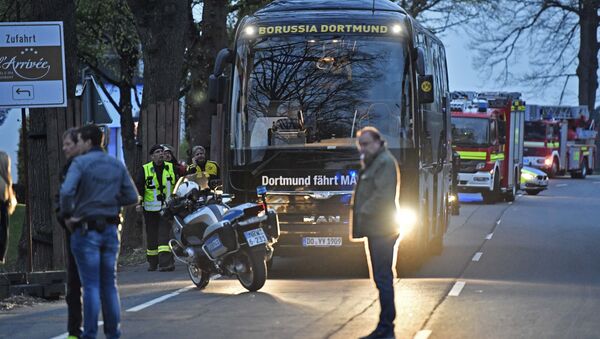Sergei's lawyer, Reinhard Treimer, told German magazine Der Spiegel that his client is innocent of all charges. The German Federal Public Prosecutor disagrees, calling Sergei "highly suspicious."
Sergei's believed motive for the bombing was greed, say federal authorities. The same day as the bombing, Sergei borrowed money to buy €78,000 ($84,993) in "put orders" on the club: warrants that would greatly appreciate in value if Dortmund Borussia saw a drastic fall in share prices. Prosecutors claimed that Sergei could have turned a profit in excess of $4 million had his alleged plan worked.
Although Sergei was staying at a hotel room with a window that overlooked the site of the attack (a room he had insisted on during check-in), that fact and the put orders are not enough to secure a conviction. German authorities are still searching for decisive evidence.
On April 11, the team was on its way to a quarter-final game against Monaco in the 2017 UEFA Championship League when three homemade roadside pipe bombs went off near their bus. Defender Marc Bartra was wounded by shards of glass from a window broken in the attack, while a policeman was injured by blast and shock. The strengthened windows of the bus prevented further damage, but the attack seemed intended to kill the entire team.
Letters claiming that the attack was an Islamic terrorist incident in retaliation for German movements against Daesh were found at the scene, but investigators were skeptical of their authenticity, as they carried many qualities not common to previous statements made by Islamic terror groups.
Claims that the attack was done by far-left or far-right extremists were also investigated. Ultimately, German police made two arrests: a 25-year-old Iraqi man with suspected ties to Daesh and Sergei W. The former detainee was cleared of suspicion, leaving Sergei as the police's chief suspect.



